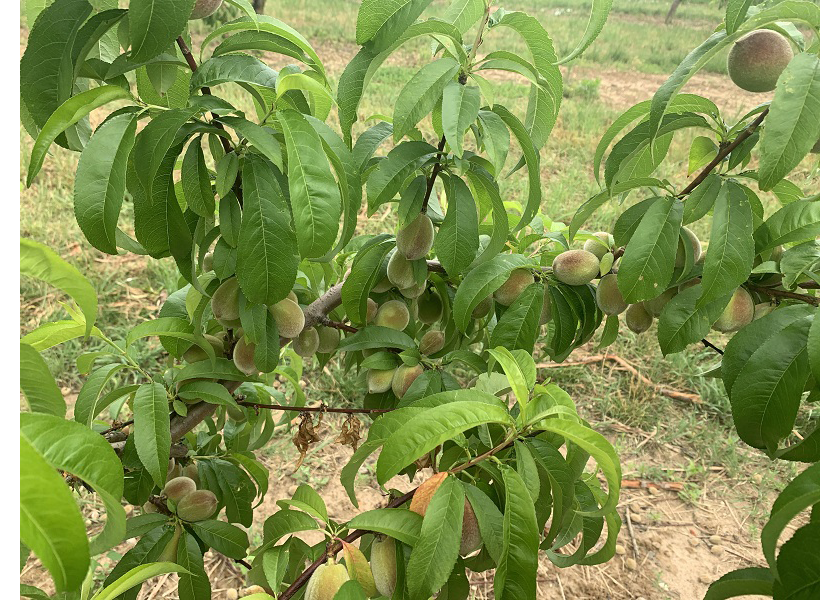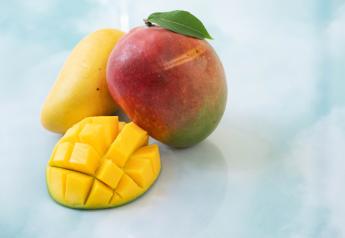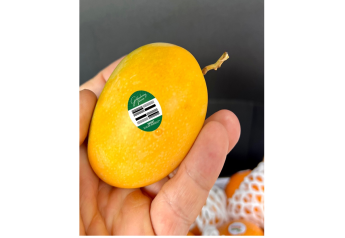New Jersey peach growers focus on thinning to produce large fruit

Fruit thinning is a labor-intensive practice for peach growers in New Jersey.
It is an expensive practice done mostly by hand, but a necessary cost because it is so important to produce large fruit to meet the needs of a competitive fruit market.
Big peaches are what most the fruit buyers and consumers demand, New Jersey growers are thinning now to produce peaches to meet that demand.
Thinning is the removal of excess flowers and fruit to balance the ratio of leaves to fruit starting in bloom and into harvest. When leaves are being formed and rapidly growing, and fruit is being formed and growing it is important to thin off the excess. according Dr Hemant Gohil, Associate Professor, and Fruit agent with the Rutgers NJ Agricultural Experiment Station. Dr Gohil who serves as educational advisor to the NJ Peach Promotion Council emphasizes that thinning is necessary to not only improve size but also to keep the tree branches and shoots fomr breaking with a heavy crop, and even dying from overload particularly when it is stressed from dry weather. and heat. A mature peach tree may have 12,000 flower or 10,000 little peaches but only needed 500 to 600 mature large fruit.
“We are fortunate in New Jersey to be able to irrigate our fruit to supplement natural rainfall, said Dr Gohil, some areas of our peach producing states are very dry making irrigation for supplemental moisture a greater challenge. “
“Labor is a big expense for growers and peach trees are pruned by hand labor as well as thinning and harvesting. Thinning costs are being reduced with mechanical aids like mechanical and rotating brushes to remove flowers, or light weight bats and shakers to knock off excess fruit. These both reduce labor costs during the thinning process”.
Dr Gohil also said, “I would be remorse to also not mention how important thinning is to improving flavor, color, and certain abiotic disorders on Jersey Fresh local peaches.
Recent statistics published by the NJ Peach Promotion Council(NJPPC) estimate that 55 NJ growers are producing about 3300 acres of peaches and nectarines and should harvest between 50, and 55 million pounds of fruit in 2021. Members of the NJ PPC are always optimistic at this time of the year, but we still have a long way until we pick and market the fruit, and lots of things can happen to reduce the crop." Fruit harvest should begin in late June.
The NJPPC is a voluntary organization of growers, packers, shippers, marketers and allied industry dedicated to the orderly marketing and promotion of NJ Peaches. For further information, visit the website www.jerseypeaches.com and find jersey peaches on Facebook, Instagram, and Twitter.







